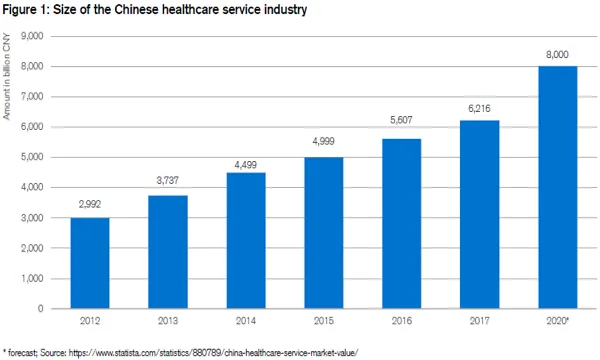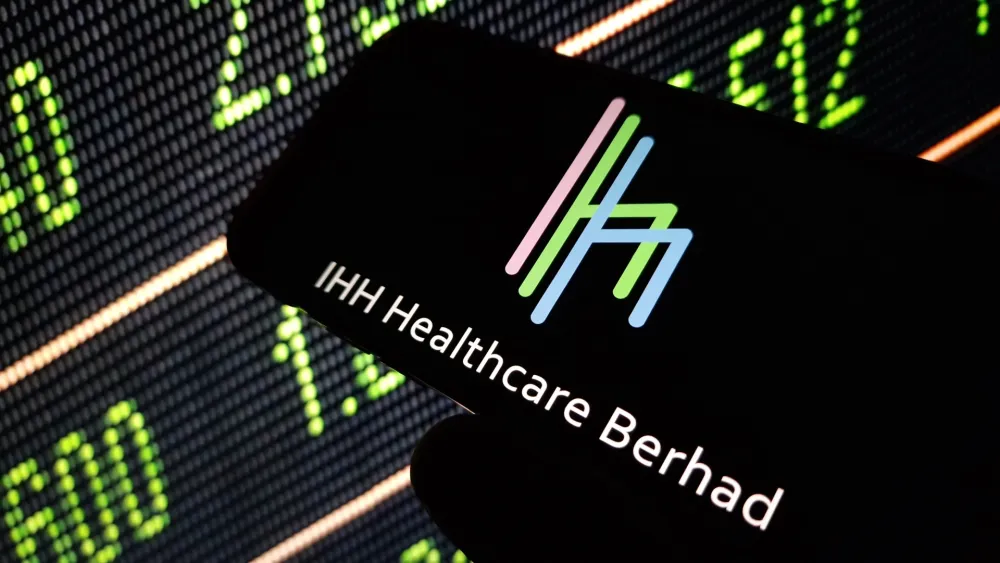
China's healthcare service sector's revenue to hit $1.16t by 2020
Tech giants such as Ping An and Tencent are tapping into blockchain and AI to address the sector’s talent shortage.
China’s healthcare service industry is expected to reach $1.16t (RMB8t) in revenues by 2020, which is around three times as much as 10 years ago, driven by rising income levels and the higher life expectancy of Chinese customers, a report by Credit Suisse Research Institute revealed.
However, the country’s healthcare system is set to face a number of challenges related to China’s transformation from an emerging market to an industrial country. The country is also said to be facing an extreme shortage of qualified personal and overworked doctors, particularly in rural areas, and hospitals are severely understaffed.
“Whilst countries such as Switzerland and Germany have a medical doctor density of 42 per 10,000 people, China’s stands at only 18.” Credit Suisse research noted.
In an attempt to address such challenges, Chinese tech giants such as Ping An, Tencent and Alibaba are said to be building their own healthcare ecosystems with the use of blockchain, artificial intelligence (AI) and advanced biometrics.
Also read: China turns to “internet hospitals” as healthcare demand shoots up
In Ping An’s case, its healthcare ecosystem is said to have over 265 million healthcare portal users, and approximately 3,000 participating hospitals, whilst Tencent is building its ecosystem within its Wechat ecosystem.
“Tencent’s healthcare portal Doctorwork connects over 10 million patients with around 440,000 certified doctors and 30,000 hospitals, providing AI-assisted screening and consultation,” Credit Suisse research said. “Tencent is also developing medical chatbots and clinical decision support software to increase the efficiency of its online consultation network.”
Meanwhile, Alibaba is reportedly structuring its healthcare ecosystem around healthcare functions targeting wellness and health lifestyle products. It also features an AI diagnostic system called DoctorYou, which assists doctors in their diagnosis and decision-making.
Urs Rohner, chairman of the board of directors of Credit Suisse Group and chairman of the Credit Suisse Research Institute, commented, “The future of the healthcare sector brings huge opportunities from the digital revolution – be it artificial intelligence, robotics or personalised medicine. But it is equally important for us to address some of the upcoming challenges we will have to face collectively as the sector evolves.”



















 Advertise
Advertise







